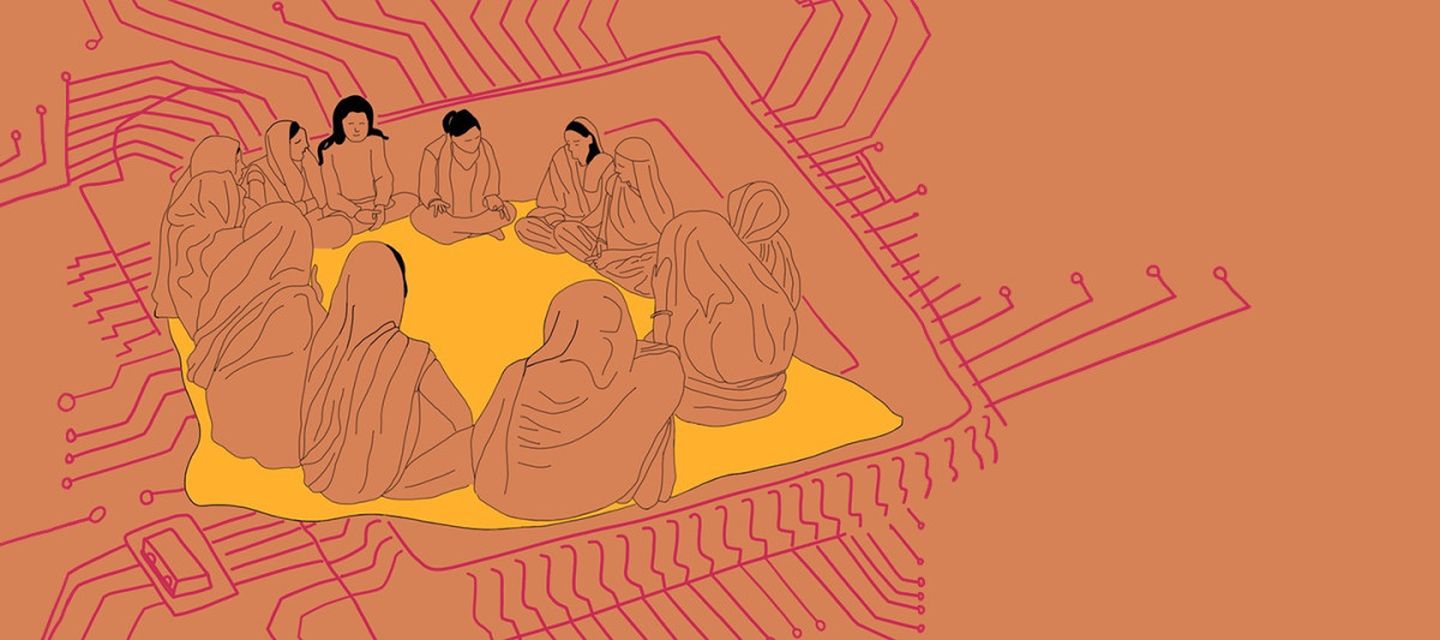
The Future of Global Workers in the Platform Age
For marginalized laborers in the Global South, the future of work is already here—from youth gaining new freedom through the creator economy to algorithmically exploited gig workers. Authors from the new book Feminist Futures of Work: Reimagining Labour in the Digital Economy (eds. Payal Arora, Usha Raman & René König) and beyond engage with this fast-moving market and discuss how we can reshape work platforms to be fair and inclusive.
The future of work is at the center of debates related to the digital society. Far less attention is given to the future of global workers at the far ends of the value chain, who participate on and off platforms, often in the shadows, invisible to policymakers and consumers. Precarity and informality characterize a largely female workforce, across sectors ranging from artisanal work to salon services to ride hailing and construction. A feminist reimagining of the futures of work—what the book Feminist Futures of Work: Reimagining Labour in the Digital Economy terms “FemWork”—is needed. It should manifest in multiple forms, placing marginalized workers at the core, and draw on their experiences, aspirations, and realities. This panel offers grounded insights from a feminist, academic, activist, and design perspective that can help us think through these inclusive futures and possibly create digital, social, and governance infrastructures of work that are fairer and more meaningful.
The book Feminist Futures of Work. Reimagining Labour in the Digital Economy (Amsterdam University Press) can now be openly accessed. For more information, see here.
About the speakers
Payal Arora is a digital anthropologist, a TEDx speaker, and an author of award-winning books, including The Next Billion Users with Harvard Press. Her expertise lies in user experience in the global south, digital inequality, and inclusive design. Forbes named her the “next billion champion” and the “right kind of person to reform tech.” She is a Professor at Erasmus University Rotterdam, and Co-Founder of FemLab, a future of work initiative.
Daniel Greene is an Assistant Professor of Information Studies at the University of Maryland. His ethnographic, historical, and theoretical research explores how the future of work is built and who is included in that future. He published his first book, The Promise of Access: Technology, Inequality, and the Political Economy of Hope, with MIT Press in 2021. It won the McGannon Award for the best book published in 2021 concerning media policy, activism, and social justice. Greene lives online at dmgreene.net.
Laura Herman is a Senior Research Lead and an AHRC PhD Student at the University of Oxford’s Internet Institute. Her research at both institutions examines the impact of emerging technologies on creative practices and artistic work.
Sai Amulya Komarraju is an Assistant Professor in the Communications area at the Indian Institute of Management, Ahmedabad. Her current and past affiliations include Erasmus University Rotterdam, Centre for Development Management and Communication, MICA, FemLab, Southern Centre for Inequality Studies (University of Witwatersrand), and University of Hyderabad. Her wide-ranging research has been published in several international journals such as Feminist Media Studies & Media, Culture & Society.
Usha Raman is Professor of Media Studies at the University of Hyderabad, where she teaches and researches in the areas of feminist media studies, digital cultures, and science and health communication. She is co-founder of FemLab and currently is serving as Vice President of the International Association for Media and Communication Research.
Aditi Surie is Senior Researcher at the Indian Institute for Human Settlements. Her work examines platform capitalism, and livelihoods and economic progress for communities on technology-mediated markets in the Global South.

:rgb(-15)

:rgb(-25)

:rgb(8)
